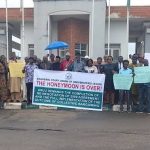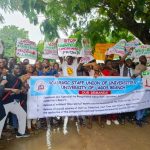The Federal Government has scheduled crucial meetings for Monday, November 24, and Tuesday, November 25, 2025, as part of efforts to stop the Academic Staff Union of Universities from embarking on another nationwide strike. The meetings were convened through the Yayale Ahmed Renegotiation Committee, which is expected to resume discussions with the union after weeks of unresolved issues. The leadership of ASUU is also preparing to convene a National Executive Council meeting where members will decide whether the union should proceed with industrial action or accept the next phase of negotiations.
A senior member of the NEC, who spoke anonymously, accused the government of using delay tactics to prevent the union from declaring a strike. He said the newly scheduled meetings appeared designed to buy time, noting that ASUU would meet immediately afterward to determine its next steps. He also confirmed that the ultimatum issued by the union expired on Saturday, raising concerns that a strike could be announced at any moment if no progress is made.
ASUU’s demands include the revision of the 2009 agreement with the Federal Government, payment of outstanding salaries and earned academic allowances, and the release of the university revitalisation fund. The union previously warned that it would resume industrial action without prior notice if the government failed to act within the one-month window it provided. University stakeholders fear that another strike could further destabilise an already strained academic calendar and deepen uncertainty for students and families. Businesses around campuses, from hostels to food vendors, transport operators and small service providers, are also watching developments closely because past strikes have significantly reduced their income during prolonged shutdowns.
The Minister of Education has repeatedly maintained that the government has met the bulk of the union’s demands. Speaking to reporters two weeks ago, he said the President had directed that no strike should be allowed to occur in public universities and insisted that negotiations were ongoing. He argued that the recent six-day warning strike by ASUU was unnecessary and said the government remained committed to keeping students in school. He emphasised that talks with ASUU leadership were continuing and disclosed that part of his recent visit to the State House was to brief the President on the negotiations and seek further concessions to encourage stability in the sector.
The latest developments highlight the tension between ongoing reforms, funding commitments and the union’s insistence on concrete implementation rather than verbal assurances. With the scheduled meetings set to hold this week, the coming days will determine whether another nationwide shutdown of public universities will be averted or if ASUU will resume industrial action for the first time since the last round of negotiations.










